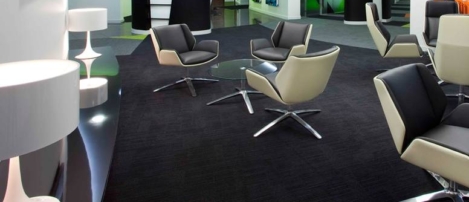September 23, 2015
Commission welcomes appointment of new diversity champions 0
 The Equality and Human Rights Commission has welcomed the announcement of four new Whitehall diversity champions to help the Civil Service become more representative of modern Britain. In a National Audit Office report earlier this year, the NAO said that although Whitehall had made some progress on promoting diversity, it needed to place greater emphasis on departments’ valuing and maximising the contribution of every member of their staff. The report by the watchdog also concluded that the Cabinet Office was not using the data it holds on staff to manage workforce changes and hold departments to account. The new advisers, who include Paralympic swimming hero Chris Holmes, Director of Paralympic Integration for London 2012, will work to challenge policies and advise ministers and Civil Service leaders on increasing the numbers of people in the workforce from under-represented groups.
The Equality and Human Rights Commission has welcomed the announcement of four new Whitehall diversity champions to help the Civil Service become more representative of modern Britain. In a National Audit Office report earlier this year, the NAO said that although Whitehall had made some progress on promoting diversity, it needed to place greater emphasis on departments’ valuing and maximising the contribution of every member of their staff. The report by the watchdog also concluded that the Cabinet Office was not using the data it holds on staff to manage workforce changes and hold departments to account. The new advisers, who include Paralympic swimming hero Chris Holmes, Director of Paralympic Integration for London 2012, will work to challenge policies and advise ministers and Civil Service leaders on increasing the numbers of people in the workforce from under-represented groups.












 The recent growth in prime headline office rents has continued across the UK’s regional
The recent growth in prime headline office rents has continued across the UK’s regional 




 One of the most typical claims that suppliers in this sector make about their products is that they will make people more productive at work. Many go so far as to put numbers on what this means, and usually not just 0.4 percent or whatever but something far more. We can understand why they do this because they are seeking to link workplace productivity to whatever it is they have to sell. This is often tenuous for at least two reasons. The first is that even when such a causal link is demonstrably true, it still assumes that all other things at work are equal, whereas they never are because there are so many factors involved. That is why you will find some people cheerfully working in shabby, cluttered, underlit offices while others mope around unhappily in gilded cages with expensive chairs, soaring daylit atria and olive groves. The second is that such claims simply ignore what makes people tick.
One of the most typical claims that suppliers in this sector make about their products is that they will make people more productive at work. Many go so far as to put numbers on what this means, and usually not just 0.4 percent or whatever but something far more. We can understand why they do this because they are seeking to link workplace productivity to whatever it is they have to sell. This is often tenuous for at least two reasons. The first is that even when such a causal link is demonstrably true, it still assumes that all other things at work are equal, whereas they never are because there are so many factors involved. That is why you will find some people cheerfully working in shabby, cluttered, underlit offices while others mope around unhappily in gilded cages with expensive chairs, soaring daylit atria and olive groves. The second is that such claims simply ignore what makes people tick.















September 18, 2015
What Robert Frost can teach us about the changing workplace
by Mark Eltringham • Comment, Facilities management, Flexible working, Technology
(more…)